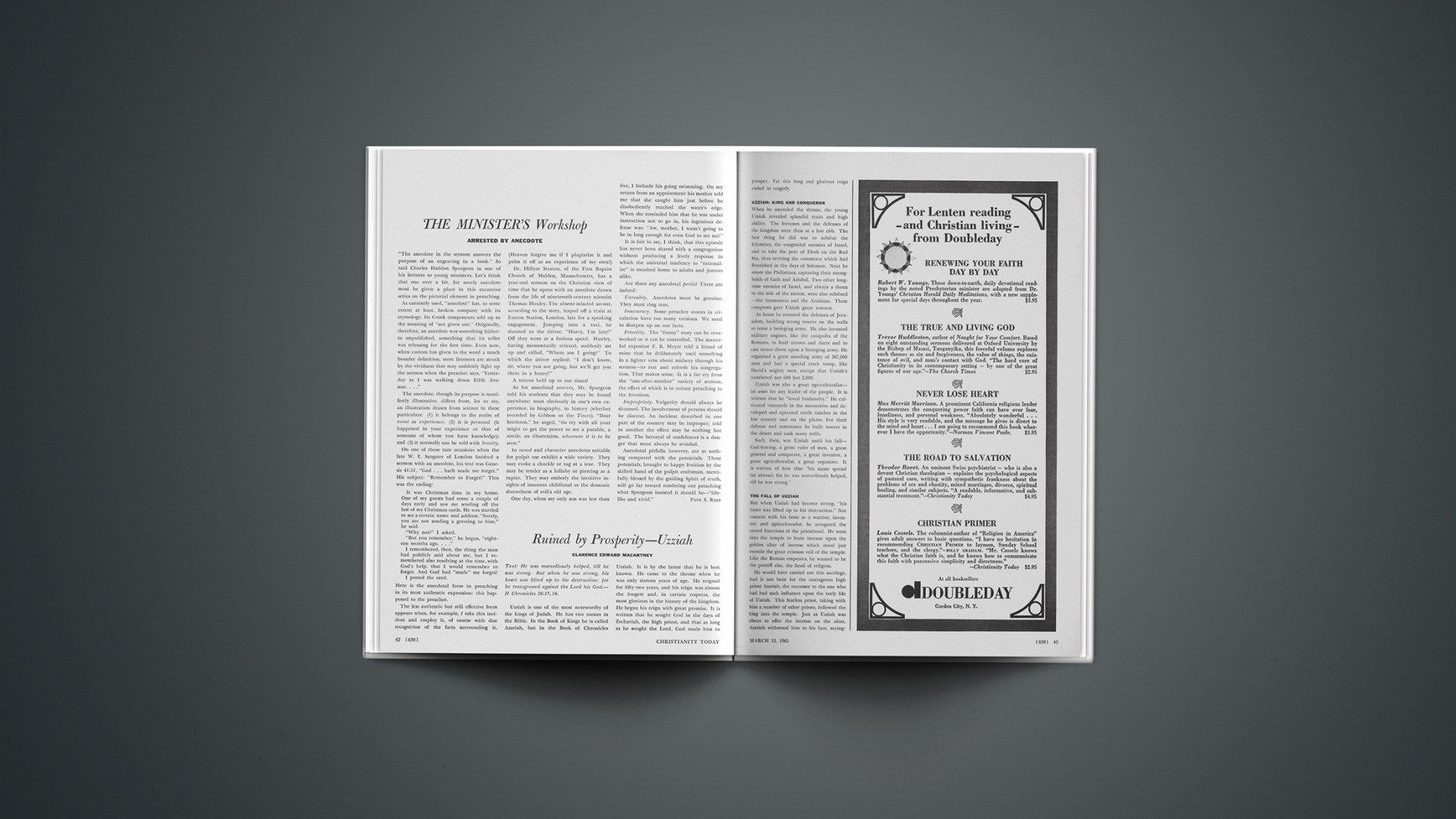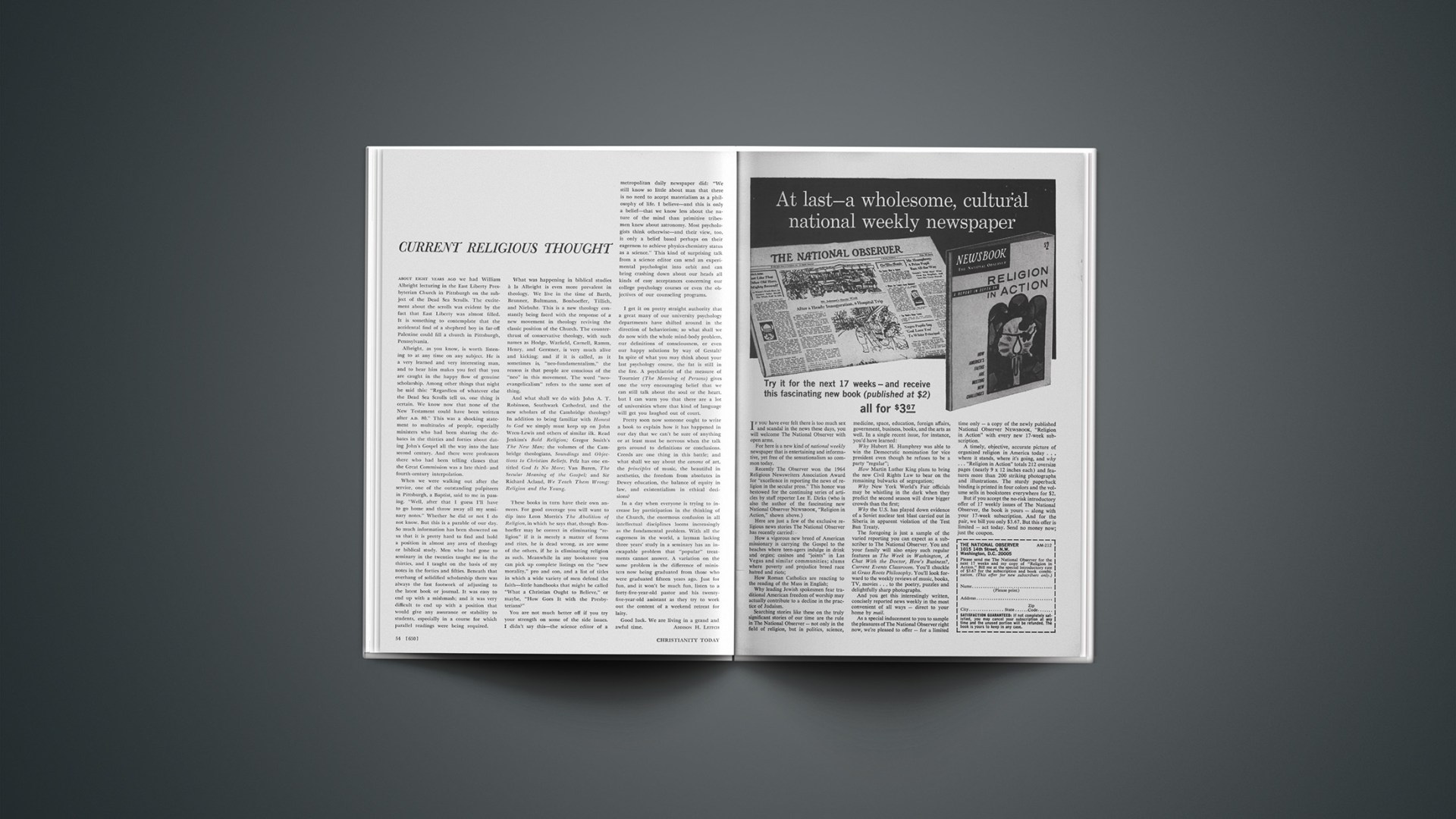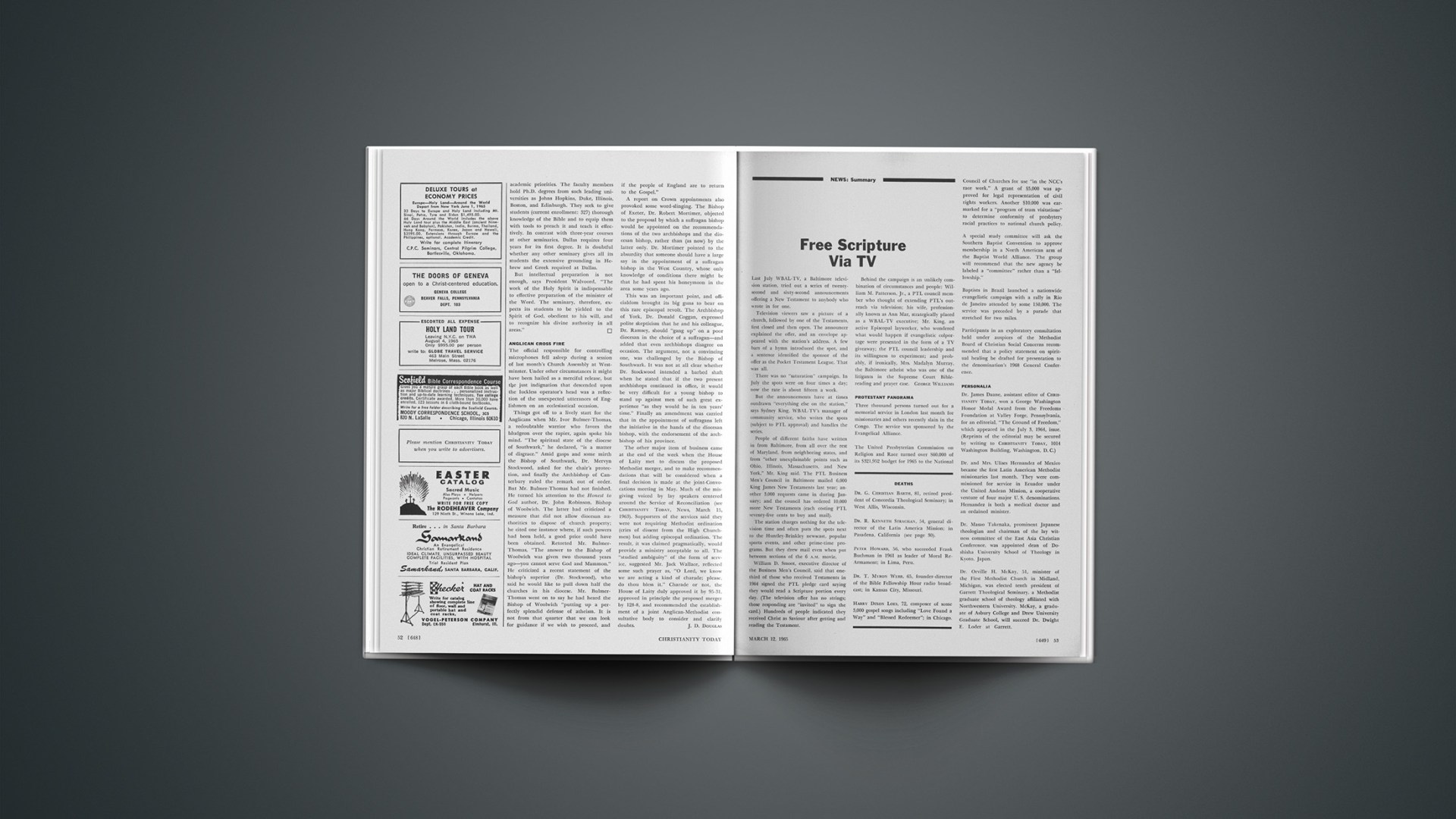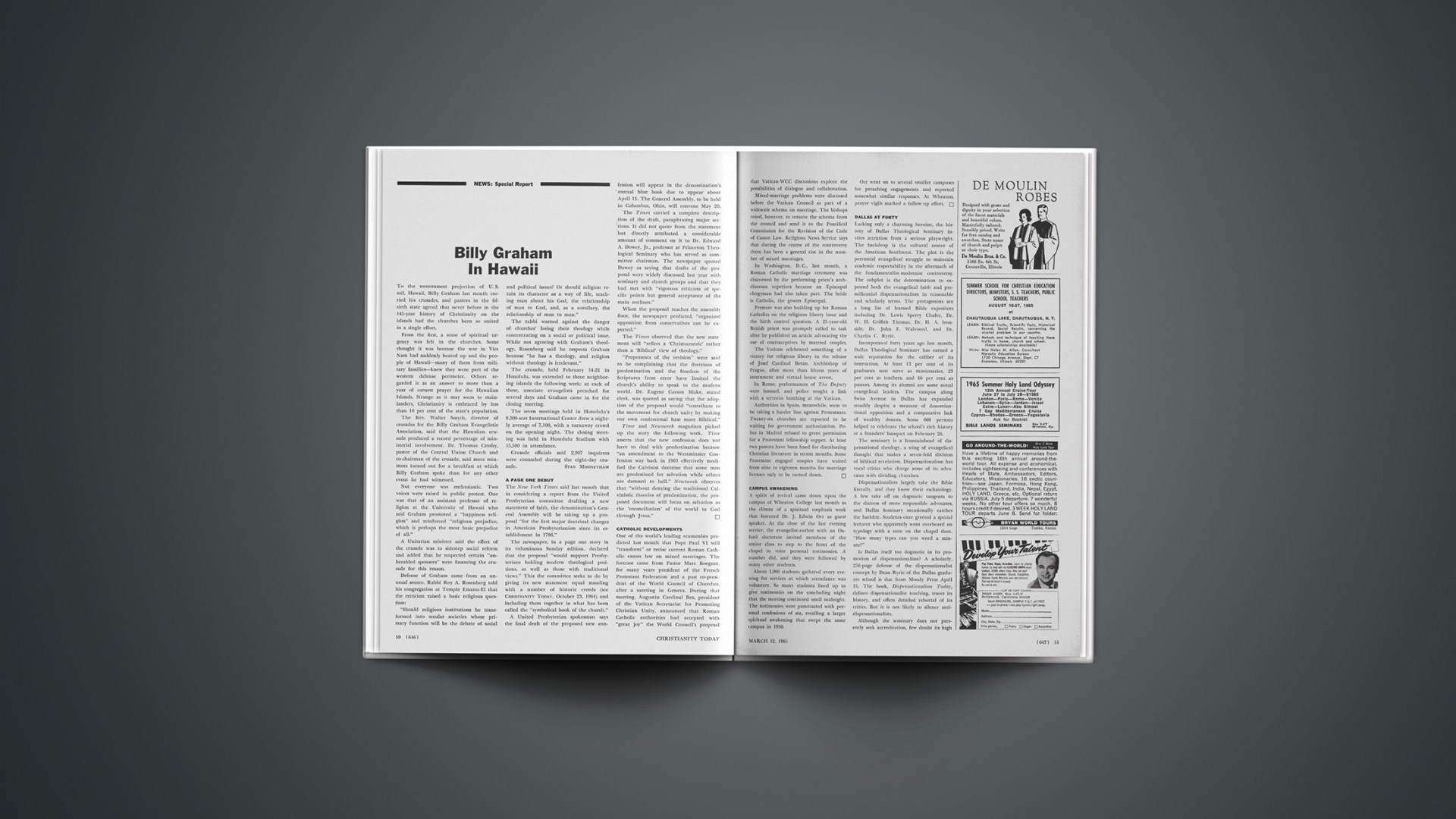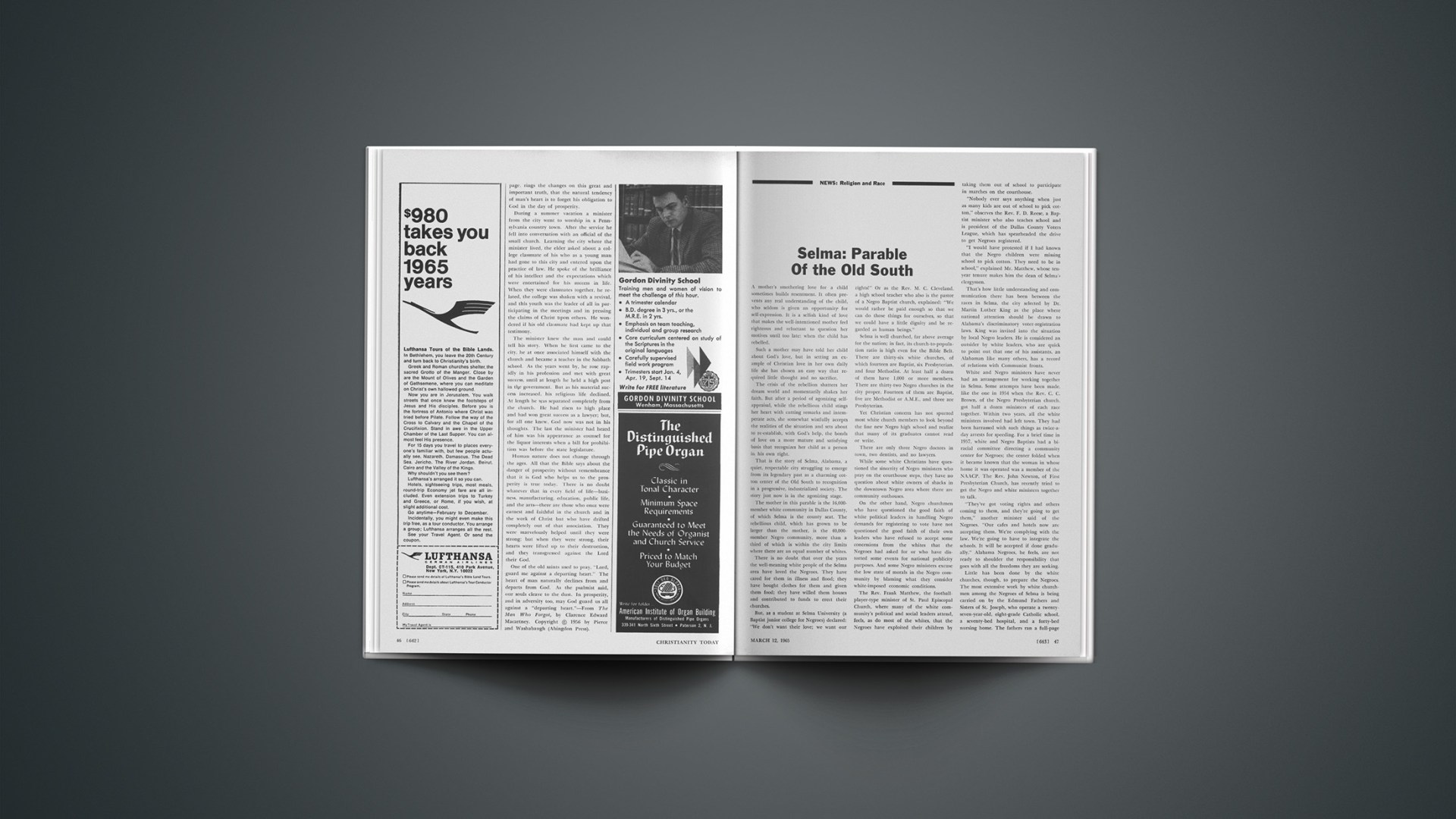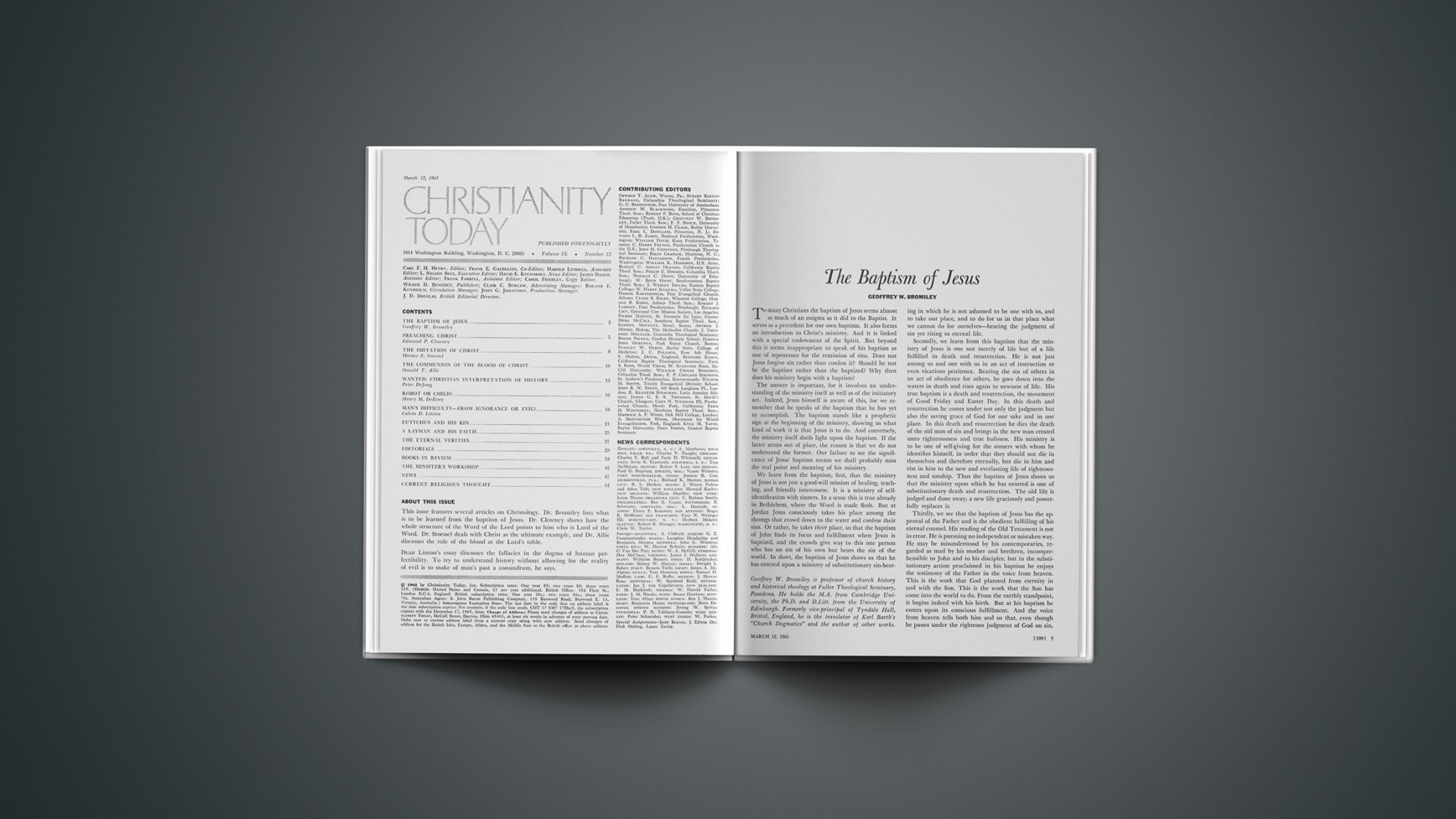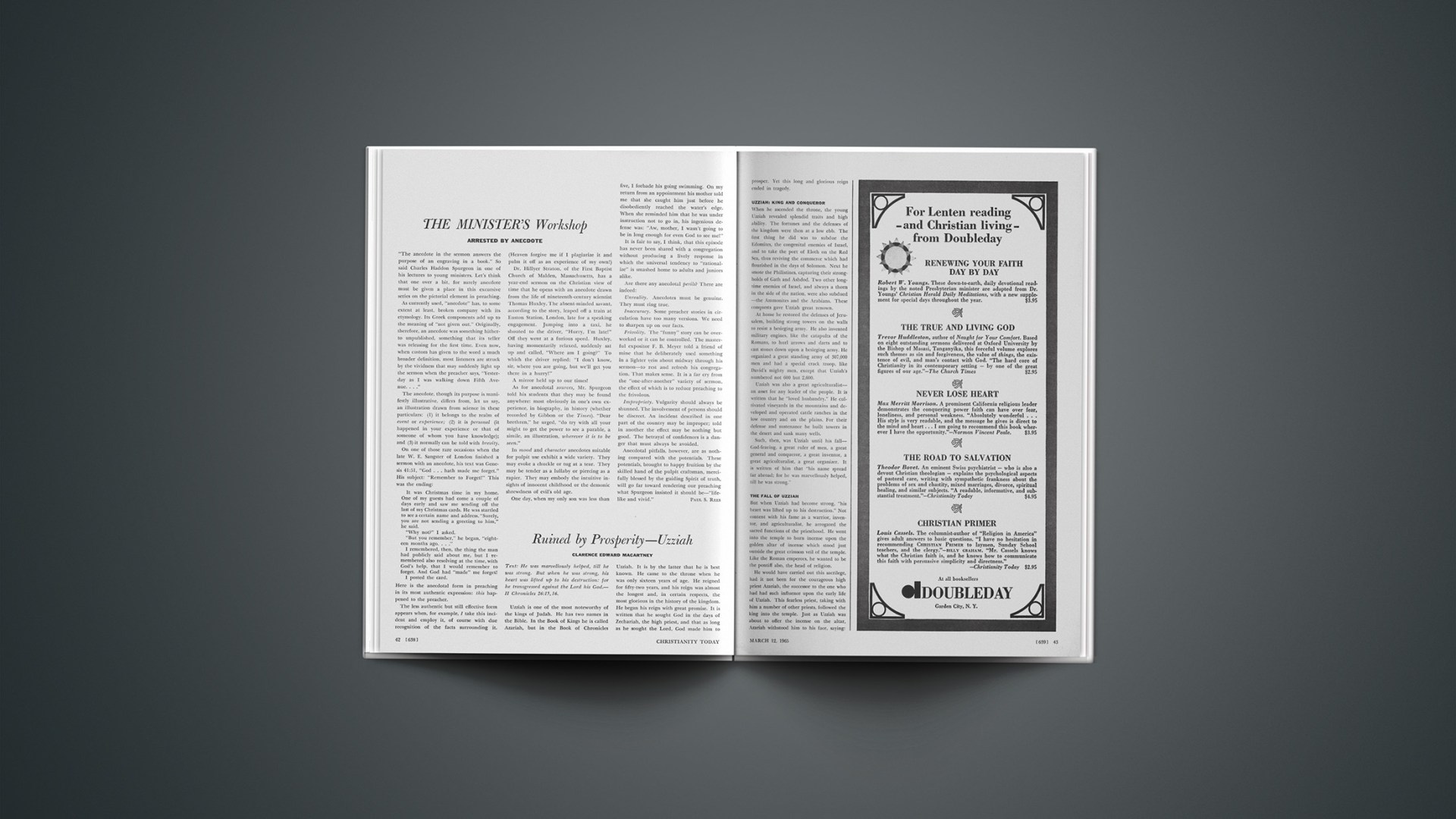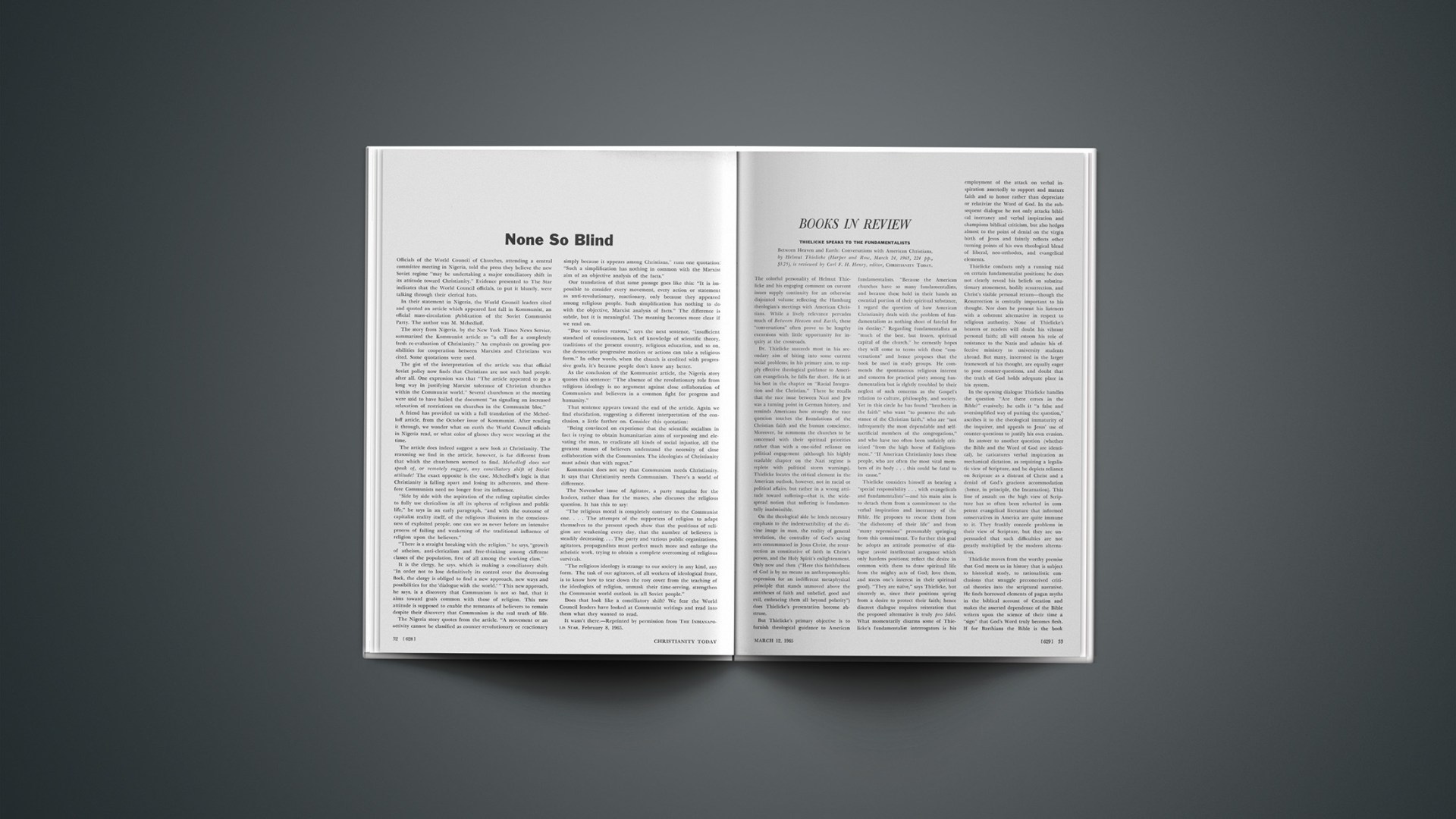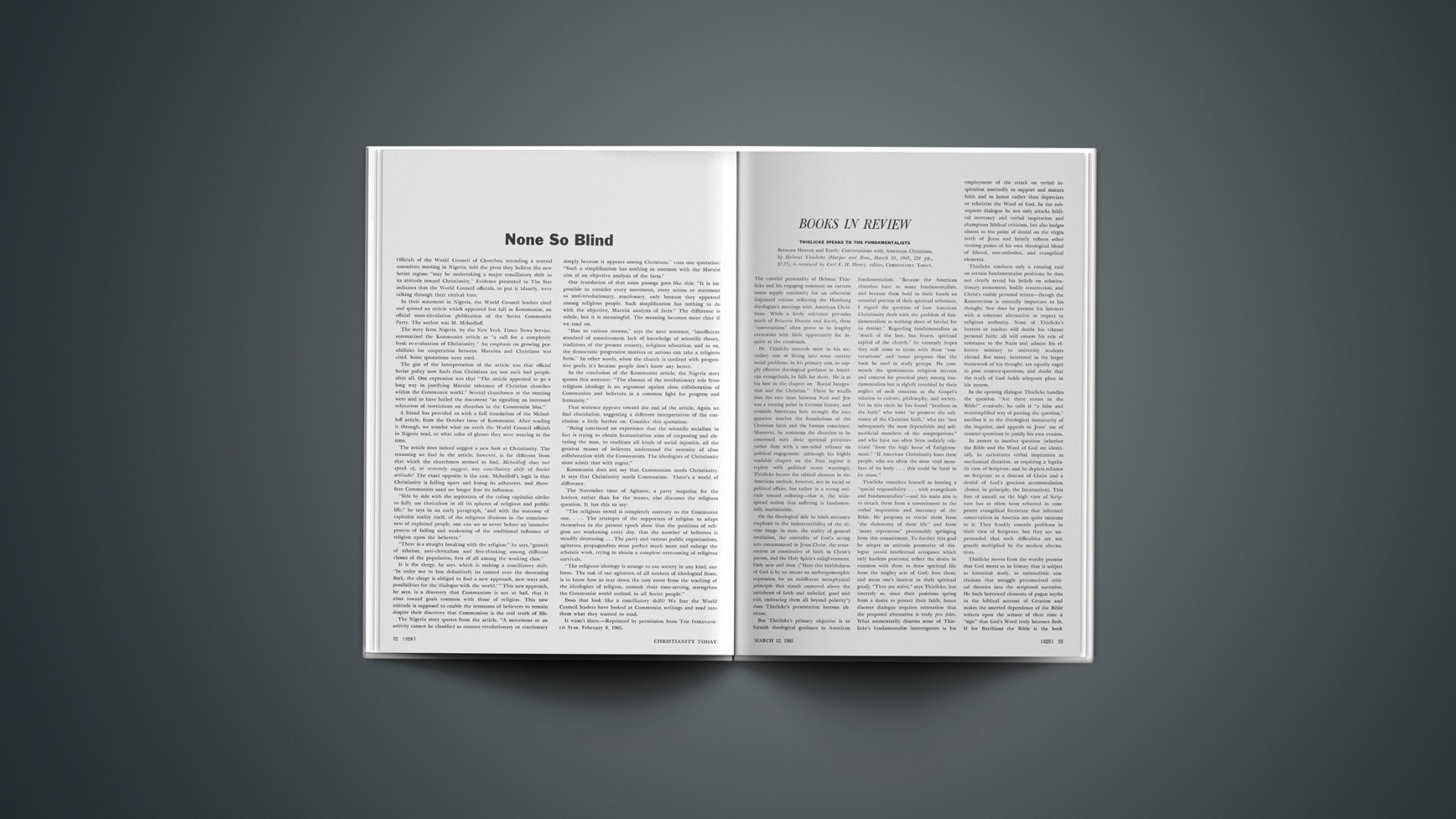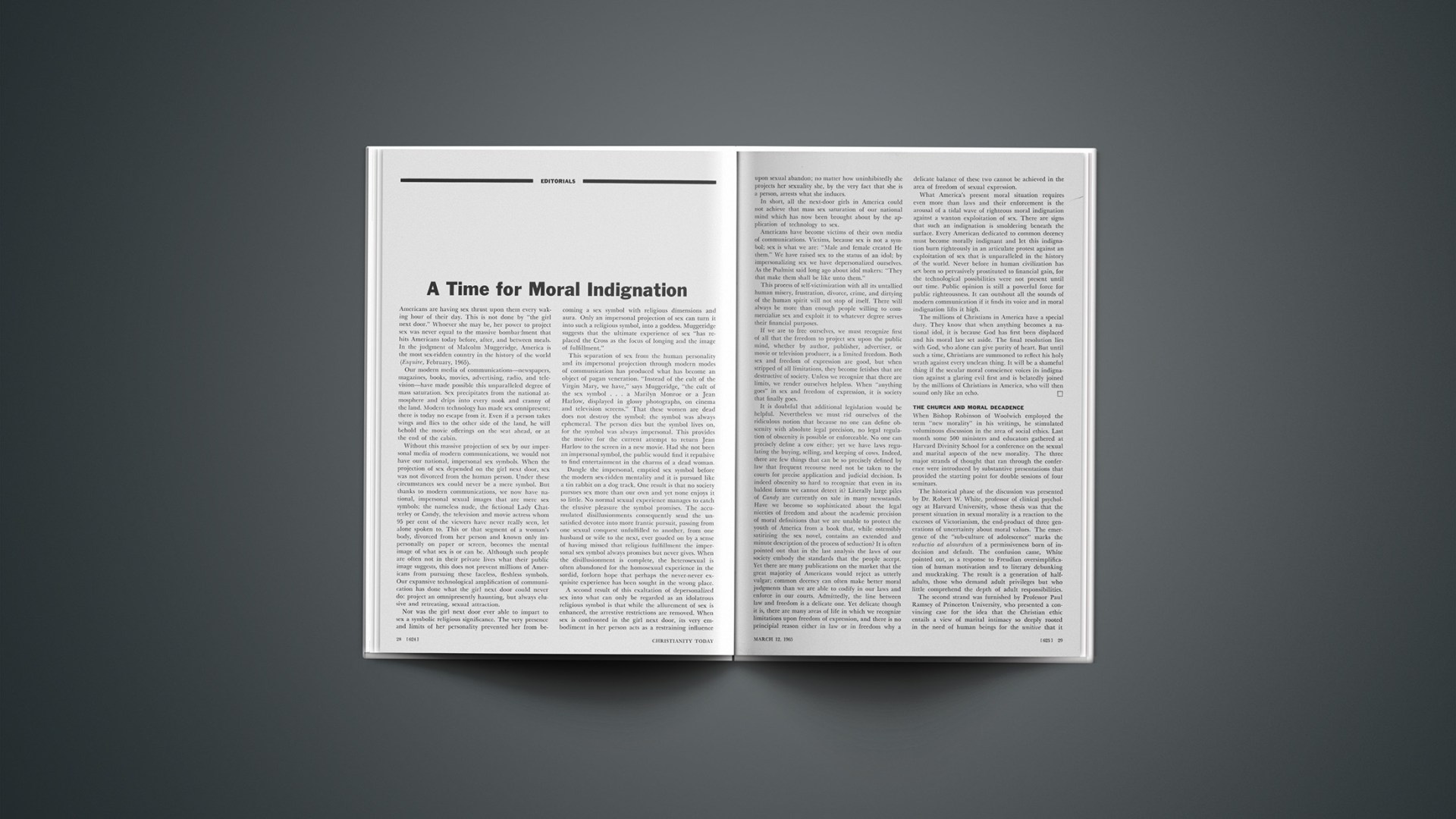Text: He was marvellously helped, till he was strong. But when he was strong, his heart was lifted up to his destruction: for he transgressed against the Lord his God.—2 Chronicles 26:15, 16.
Uzziah is one of the most noteworthy of the kings of Judah. He has two names in the Bible. In the Book of Kings he is called Azariah, but in the Book of Chronicles
Uzziah. It is by the latter that he is best known. He came to the throne when he was only sixteen years of age. He reigned for fifty-two years, and his reign was almost the longest and, in certain respects, the most glorious in the history of the kingdom. He began his reign with great promise. It is written that he sought God in the days of Zechariah, the high priest, and that as long as he sought the Lord, God made him to prosper. Yet this long and glorious reign ended in tragedy.
Uzziah: King And Conqueror
When he ascended the throne, the young Uzziah revealed splendid traits and high ability. The fortunes and the defenses of the kingdom were then at a low ebb. The first thing he did was to subdue the Edomites, the congenital enemies of Israel, and to take the port of Eloth on the Red Sea, thus reviving the commerce which had flourished in the days of Solomon. Next he smote the Philistines, capturing their strongholds of Gath and Ashdod. Two other long-time enemies of Israel, and always a thorn in the side of the nation, were also subdued—the Ammonites and the Arabians. These conquests gave Uzziah great renown.
At home he restored the defenses of Jerusalem, building strong towers on the walls to resist a besieging army. He also invented military engines, like the catapults of the Romans, to hurl arrows and darts and to cast stones down upon a besieging army. He organized a great standing army of 307,000 men and had a special crack troop, like David’s mighty men, except that Uzziah’s numbered not 600 but 2,600.
Uzziah was also a great agriculturalist—an asset for any leader of the people. It is written that he “loved husbandry.” He cultivated vineyards in the mountains and developed and operated cattle ranches in the low country and on the plains. For their defense and sustenance he built towers in the desert and sank many wells.
Such, then, was Uzziah until his fall—God-fearing, a great ruler of men, a great general and conqueror, a great inventor, a great agriculturalist, a great organizer. It is written of him that “his name spread far abroad; for he was marvellously helped, till he was strong.”
The Fall Of Uzziah
But when Uzziah had become strong, “his heart was lifted up to his destruction.” Not content with his fame as a warrior, inventor, and agriculturalist, he arrogated the sacred functions of the priesthood. He went into the temple to burn incense upon the golden altar of incense which stood just outside the great crimson veil of the temple. Like the Roman emperors, he wanted to be the pontiff also, the head of religion.
He would have carried out this sacrilege, had it not been for the courageous high priest Azariah, the successor to the one who had had such influence upon the early life of Uzziah. This fearless priest, taking with him a number of other priests, followed the king into the temple. Just as Uzziah was about to offer the incense on the altar, Azariah withstood him to his face, saying: “It is not for thee, Uzziah, to burn incense unto the Lord. This is the work and ministry of the priests, the sons of Aaron, who are consecrated to this office. Go out of the sanctuary, for thou hast trespassed; neither shall it be for thine honor from the Lord God.”
This protest and rebuke by the priest enraged the king, who was holding the censer in his hand to burn incense. From the record we infer that he was ready to strike the high priest with his censer. But before he could strike the high priest or offer the incense, lo, leprosy rose up in his forehead! When the priests saw that he had become a leper, they thrust him out of the holy house. Since no leper could reign as king, he was removed from his throne and spent the rest of his days in a lazar house.
That, then, is the story of Uzziah. “He was marvellously helped, till he was strong. But when he was strong, his heart was lifted up to his destruction: for he transgressed against the Lord his God.”
The Peril Of Prosperity
The tragedy of Uzziah tells us of the danger lurking in success. Everyone wants to succeed. Everyone wants to exert influence in his chosen and appointed place. But there is a peril in success; for often, as in the case of Uzziah, worldly success lifts a man’s heart up so that he loses his humble trust in God.
Waiting once for an installation service to commence at a church in New Jersey, I fell into conversation with an elder in the church. He had been a most prosperous businessman but recently had suffered serious reverses. After telling me of these reverses he said, “I am glad that I failed, for I was getting away from God.” It takes humility to keep a man safe when he has power, riches, or worldly success. Always we must ask for a humble heart.
The great preacher, George Whitefield, just before he began his sermon one day in his Tottingham Road Chapel in London, was handed a note which read “The prayers of this congregation are desired for a young man who has become heir to an immense fortune, and who feels much need for grace to keep him humble in the midst of his riches.” In too many cases, men rising to high places have forgotten to make the prayer of that young man.
Prosperity is always dangerous. It inclines a man’s heart to pride. At the zenith of his power, and ruler of a world empire, Nebuchadnezzar boasted, “Is not this great Babylon, that I have built?” God’s answer was to drag him down from his throne and turn him out into the fields, where he ate grass like an ox until he learned that there was a God in heaven.
In his grand farewell address to the children of Israel, recorded in the Book of Deuteronomy, Moses warned the people against the dangers of prosperity. He had told them of the good land, the promised land, to which God would bring them according to his promise, and that when they reached that land, they were to “bless the Lord thy God for the good land which he hath given thee.” Then he warned them to beware lest in the day of prosperity and success they should overlook their part in this promise.
Beware that thou forget not the Lord thy God, in not keeping his commandments, and his judgments, and his statutes, which I command thee this day: lest when thou hast eaten and art full, and hast built goodly houses, and dwelt therein; and when thy herds and thy flocks multiply, and thy silver and thy gold is multiplied, and all that thou hast is multiplied; then thine heart be lifted up, and thou forget the Lord thy God, which brought thee forth out of the land of Egypt, from the house of bondage; … and thou say in thine heart, My power and the might of mine hand hath gotten me this wealth.
What is true of the nation is true of the individual. What Moses describes there, and what afterwards took place—the people of Israel forgetting that it was the Lord their God who brought them out of the land of Egypt and out of the house of bondage, and thinking that their own power and might had secured them prosperity in the promised land—that very thing happened to King Uzziah. He forgot that it was the Lord his God who had so wonderfully helped him; he assumed that he had succeeded by his own power and could safely defy God’s commandments.
Although he did not so completely flout God’s will as did Uzziah, another great king of Judah, Hezekiah, in the day of his prosperity let his pride turn him from God. God had delivered him in a wonderful way from the might of the Assyrian despot, Sennacherib. God had also spared the life of Hezekiah when he was sick unto death and had sent the shadow back for him ten degrees on the dial, granting him fifteen more years of life. But as the chronicler says, “Hezekiah rendered not again according to the benefit done unto him; for his heart was lifted up.” Instead of acting in humility and gratitude unto God, he received the ambassadors of the king of Babylon as if they were the friends of his nation, and showed them all his riches and treasures and the splendor of his kingdom. For that pride and presumption Isaiah pronounced upon him the judgment of God, telling him that all these treasures and possessions which he had so proudly shown to the ambassadors of Babylon would one day be carried thither, and nothing left of them in Jerusalem. Thus the Bible, page after page, rings the changes on this great and important truth, that the natural tendency of man’s heart is to forget his obligation to God in the day of prosperity.
During a summer vacation a minister from the city went to worship in a Pennsylvania country town. After the service he fell into conversation with an official of the small church. Learning the city where the minister lived, the elder asked about a college classmate of his who as a young man had gone to this city and entered upon the practice of law. He spoke of the brilliance of his intellect and the expectations which were entertained for his success in life. When they were classmates together, he related, the college was shaken with a revival, and this youth was the leader of all in participating in the meetings and in pressing the claims of Christ upon others. He wondered if his old classmate had kept up that testimony.
The minister knew the man and could tell his story. When he first came to the city, he at once associated himself with the church and became a teacher in the Sabbath school. As the years went by, he rose rapidly in his profession and met with great success, until at length he held a high post in the government. But as his material success increased, his religious life declined. At length he was separated completely from the church. He had risen to high place and had won great success as a lawyer; but, for all one knew, God now was not in his thoughts. The last the minister had heard of him was his appearance as counsel for the liquor interests when a bill for prohibition was before the state legislature.
Human nature does not change through the ages. All that the Bible says about the danger of prosperity without remembrance that it is God who helps us to the prosperity is true today. There is no doubt whatever that in every field of life—business, manufacturing, education, public life, and the arts—there are those who once were earnest and faithful in the church and in the work of Christ but who have drifted completely out of that association. They were marvelously helped until they were strong; but when they were strong, their hearts were lifted up to their destruction, and they transgressed against the Lord their God.
One of the old saints used to pray, “Lord, guard me against a departing heart.” The heart of man naturally declines from and departs from God. As the psalmist said, our souls cleave to the dust. In prosperity, and in adversity too, may God guard us all against a “departing heart.”—From The Man Who Forgot, by Clarence Edward Macartney. Copyright © 1956 by Pierce and Washabaugh (Abingdon Press).

